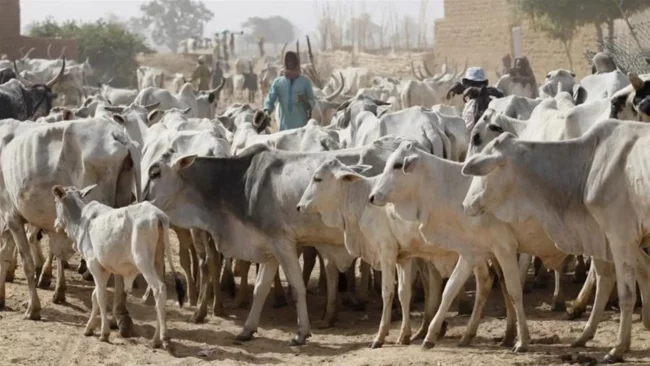Nigerians should avoid playing politics with issues surrounding the anti-open grazing Bill pending before the National Assembly, some professionals said at the weekend.
They warned against ethnic profiling of herders because those who plied such trade cut across various ethnic groups.
Speaking with the Nigerian Tribune on the bill designed to establish a commission, the Director Center for Human Rights and Accountability Network (CHRAN) in Akwa Ibom State, Mr Franklin Isong, said the proposed legislation remained the way to go due to insecurity in the country.
“Let me say that cattle rearing is not only a northern profession. We have cattle herders in the East. You cannot try to stereotype a particular ethnic group as the only people who are known for rearing cattle. It is completely unappreciated,” he stated.
To underscore the importance of the bill, the legal practitioner said: “There is no way other than us having a law to regulate the activities of cattle herdsmen. I think the law is in place. The attempt of the northern Senators to politicise it and make it look like it is a North and South agenda is completely unnecessary and it is unpatriotic.
“One would have thought that the senators would cue in to be sure that we address the issue of insecurity. How can they make it seem like cattle have human rights? They are making it seem like it is their fundamental right to obstruct movement.
“That argument is extremely unnecessary and insubstantial. We have insecurity today in the country and majority of these nomads are not even Nigerians.
“They bring their cattle in here to graze because of climate change. If we allow it to continue, they will eventually overrun this country. You will just look around and see people speaking a language that you don’t understand. So, because you don’t want to be seen as a tribalist, you refuse to regulate cattle nomad laws?”
“That is why you can see them moving freely in other states. It is because they have the indigenes, prominent citizens of those states getting involved. It is a business, not a crime. So, if we can have ranching reserves, the security of those herders that go around with cattle will be guaranteed, as well as the security of the cattle. It will generate resources for the country, and you can now document which cattle is coming in from where, and who are the owners.
“Today, you can see over 30 cattle on the street and you see one or two herders going about. I think that the bill to regulate and prohibit open grazing will go a long way to resolving security challenges that we are having in this country.”
In Kano, a legal practitioner, Mr A.T Jubrin said the bill would address the incessant conflict between herders and farmers, as well as other citizens in the country.
According to Jubrin, such clashes have caused a lot of problems for the bcitizens.
Another lawyer, Mr.Abdul Adamu Fage, however, was of the view that there is need for a mechanism to be put in place to protect the cattle of all the stakeholders based on
the fundamental rights of the people as enshrined in Chapter 12 of 1999 Constitution (as amended).
In the same vein, Mr Clifford Thomas, another lawyer, Mr Clifford Thomas, who is the Coordinator, Akwa Ibom Human Rights Community, Executive Director, Foundation for Civic Education, Human Rights and Development Advancement stressed the imperative of an anti-grazing legislation.
He noted: “We have insecurity today in the country and majority of these nomads are not even Nigerian. They bring their cattle in here to graze because of climate change. If we allow it to continue, they will eventually overrun this country.
“Let me say that cattle ranching is not only a northern profession. That is why you can see them moving freely in other states. It is because they have the indigenes, prominent citizens of those states getting involved. It is a business, not a crime.
“So, if we can have ranching reserves, the security of those herders that go around with the cattle will be guaranteed, as well as the security of the cattle.
“It will generate resources for the country, and you can now document which cattle is coming in, from where, and who are the owners.
“Today, you can see over 30 cattle on the street and you see one or two herders going about. I think that the bill to regulate and prohibit open grazing will go a long way to resolving security challenges that we are having in this country.”
ALSO READ: Southwest Govs adopt “Iṣẹ̀ wà fùń Ilẹ wá” song as Yoruba anthem
